Circuit of Wales: 'Inexplicable decisions' by Welsh Government
- Published
Public accounts committee chairman Nick Ramsay criticised spending on the project
Government officials made "inexplicable decisions" about the spending of public money on the ill-fated Circuit of Wales project, assembly members have said.
They found no evidence that ministers had approved the purchase of a motorcycle firm in England with funds earmarked for the Ebbw Vale race track.
Public accounts committee chairman Nick Ramsay said the public were "misled" and wants spending controls tightened.
The Welsh Government said it recognised there were "lessons to be learnt".
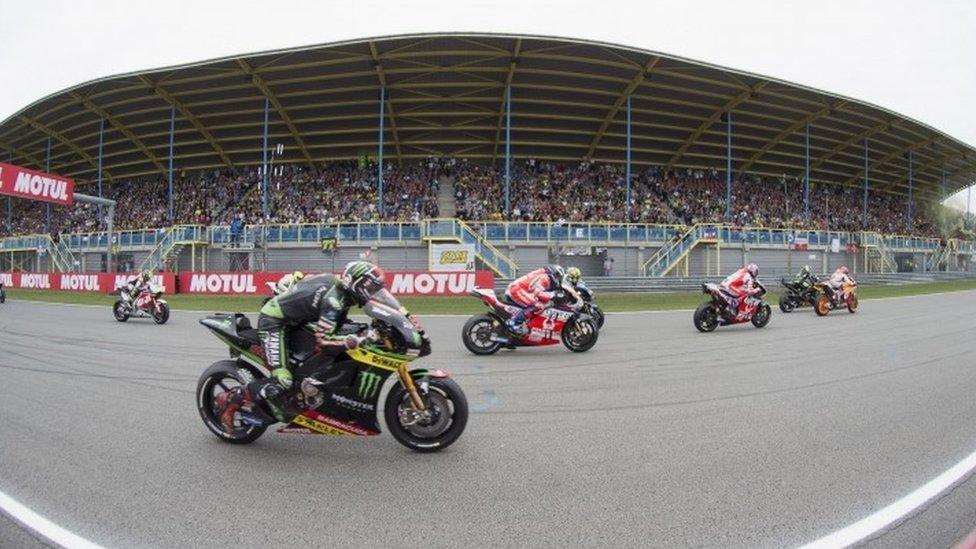
Circuit backers had planned to bring the British leg of the MotoGP to Ebbw Vale
Backers of the £433m project claimed it would create up to 6,000 jobs in an unemployment blackspot in south east Wales.
But the scheme was effectively killed off in June 2017 when ministers rejected a request by the Heads of the Valleys Development Company (HoVDC) - the firm behind the race track - to guarantee almost half the funding.
However, a report by AMs published on Tuesday, external is critical of the way the Welsh Government scrutinised more than £9m of public money already spent on the proposal.
They were particularly concerned about HoVDC's purchase in 2016 of FTR Moto, a motorcycle firm in Buckinghamshire.
A Welsh Government press release denied the firm used £300,000 from a £2m property development grant to help pay for it, but the committee saw paperwork confirming officials knew about the purchase and approved it.
However, there was no evidence that the then minister for business Edwina Hart had been told about the agreement.
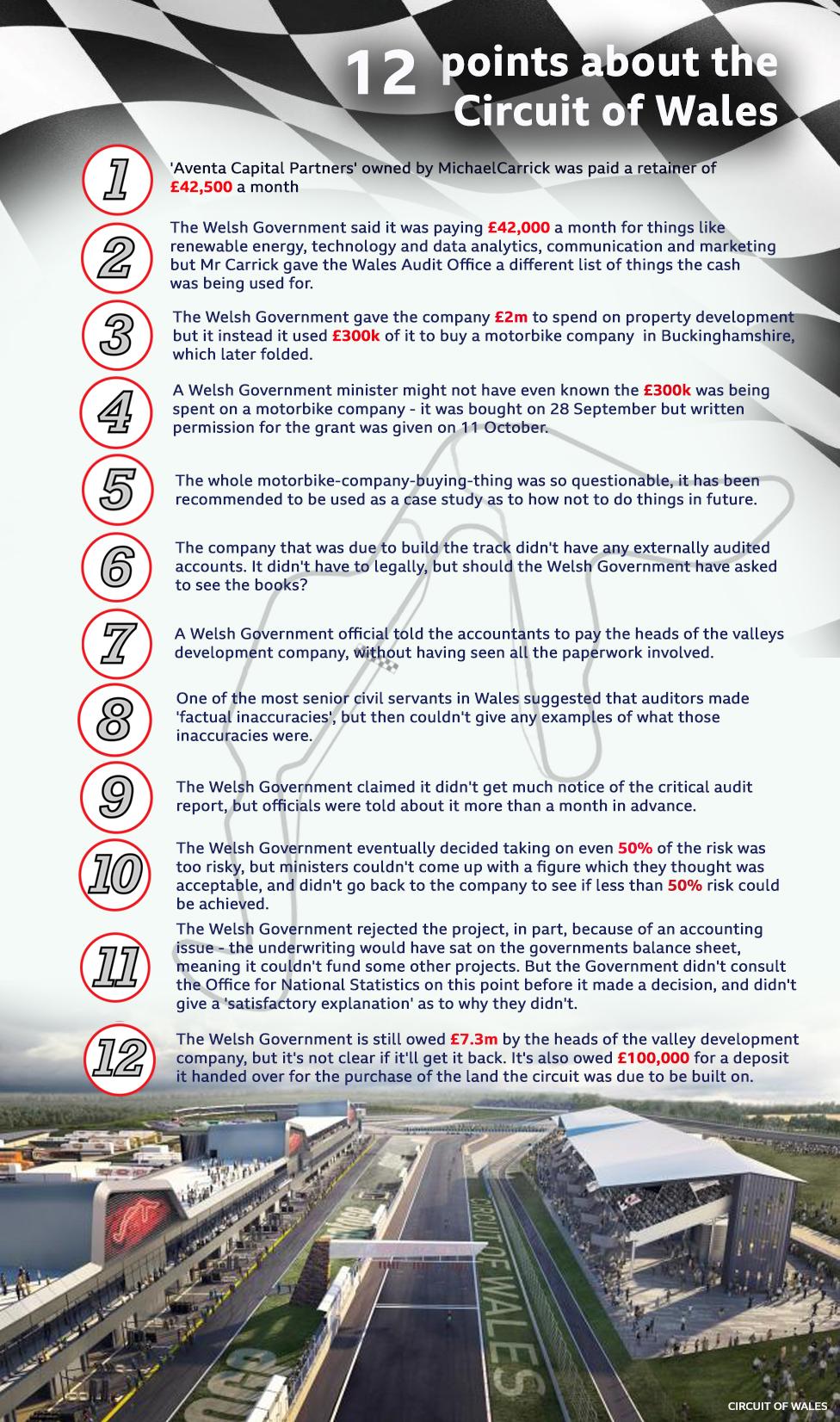
AMs were also worried about a deal which saw HoVDC pay a firm owned by its chief executive Michael Carrick £42,500 a month for specialist services.
They said Welsh Government officials had not checked whether Aventa Capital Partners got the work after a competitive tendering process, or knew exactly what services they had been hired to provide.
The report highlights what it calls officials' failure to inform Mrs Hart "key information" on the project, and "inaccuracies" in Welsh Government press releases and a written statement.
This, say the AMs, "created a strong impression to the committee of a department which was not properly in control of its business".
The senior Welsh Government civil servant dealing with the project was James Price, then deputy permanent secretary at the economy department.
Mr Price has since been seconded to Transport for Wales to be its chief executive, external, with Andrew Slade promoted to his former role.
The public accounts committee urges the economy department "under its new leadership" to "take stock and put in place robust and effective governance and internal communication channels to guarantee that such issues do not recur".
Mr Ramsay said the Welsh Government was right to explore the possibilities of making such a "unique and significant" project work, but the committee was "deeply concerned" at the way it was handled.
He told the Good Morning Wales programme on BBC Radio Wales: "Welsh Government simply cannot behave like this.
"There has to be accountability, there has to be ministerial accountability, and that needs to follow through into the civil servants underneath. Otherwise, government is going to be impossible."
"When we tried to pin down who actually had taken these decisions, it became very very difficult.
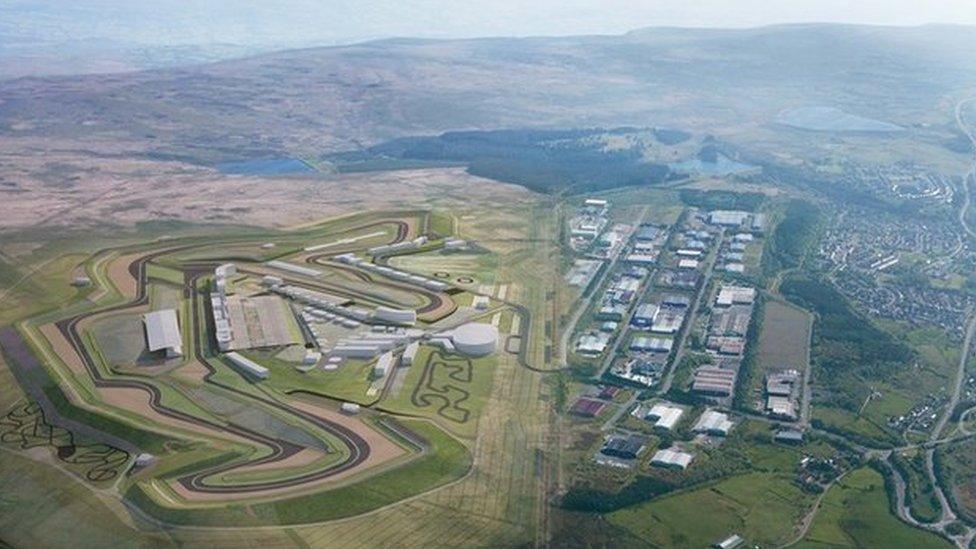
Racetrack: Artist impression of the proposed development
"We tried to find out whether Edwina Hart was in the loop or not, but there was no paper trail. I cannot tell you whether the minister signed off these decisions or not. That's completely unacceptable."
"That's why we've recommended that the Welsh Government needs to go back to the drawing board on this one, and make sure that in future their procedures are a lot more watertight."
A Welsh Government spokesman said: "We have already recognised that there are lessons to be learnt from elements of the Welsh Government's handling of this project and have put in place new processes to address some of those issues."
In February, HoVDC entered a company voluntary arrangement with its creditors - to whom it owes more than £24m - in an attempt to avoid liquidation.
Mr Carrick defended HoVDC, saying: "This is not a report into the project or the company - it is a report in the Welsh Government's behaviour.
"We are looking at ways of getting this done without the support of the Welsh Government. We are still positive."
In response to criticism of the money his Aventa company was paid in a monthly retainer from HoVDC, he insisted there was a huge amount of work carried out by the firm to get planning permission for the site.

Analysis by Nick Servini, BBC Wales political editor
This is a damning report which accuses the Welsh Government's economy department of not being in control in the way it responded to one of the most high-profile proposals in recent years.
An impression is given of poor record-keeping, lack of ministerial oversight and poor judgements.
Officials did not demand audited accounts and misleading statements were released to the media when it was established that a property development grant had been used to buy an engineering company in Buckinghamshire that went out of business.
As difficult as this is for the Welsh Government, there must be relief that it never ended up supporting the Circuit of Wales, on the basis that if there has been this much rancour over the way £9m was spent, imagine if the sums amounted to more than £200m.
- Published5 February 2018
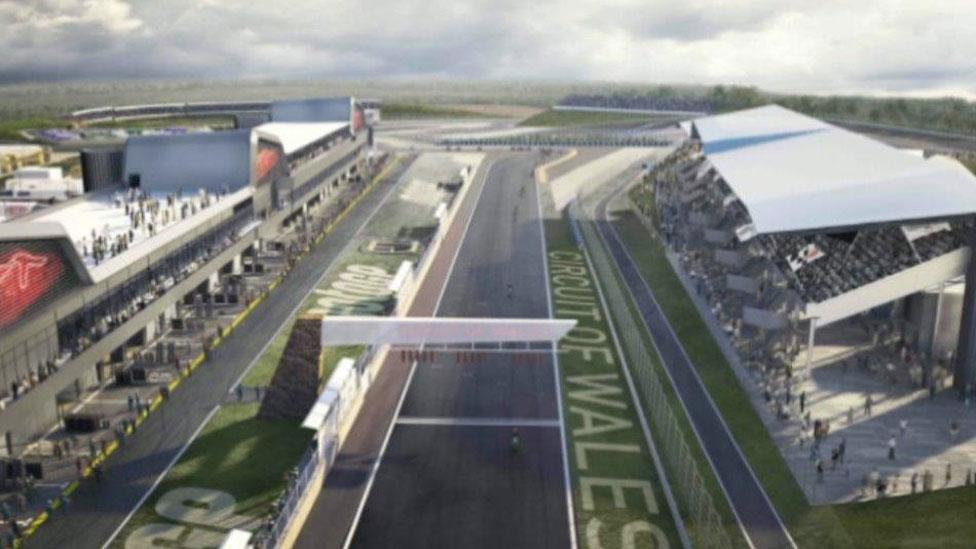
- Published28 June 2017

- Published27 June 2017
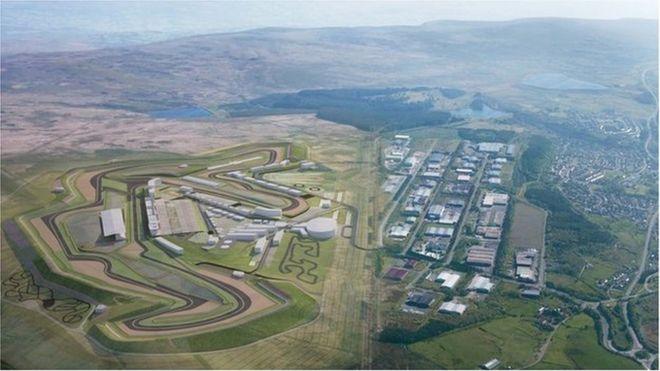
- Published27 June 2017
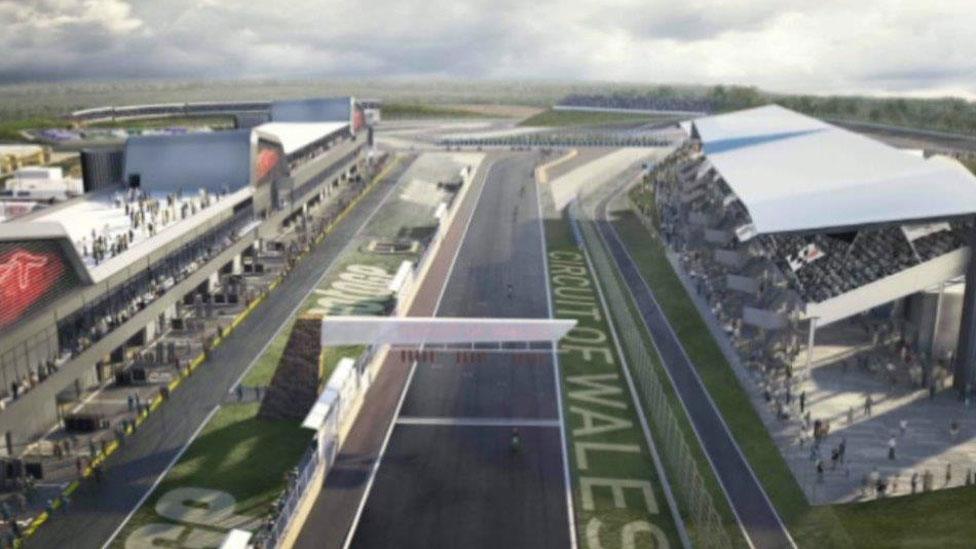
- Published27 April 2017
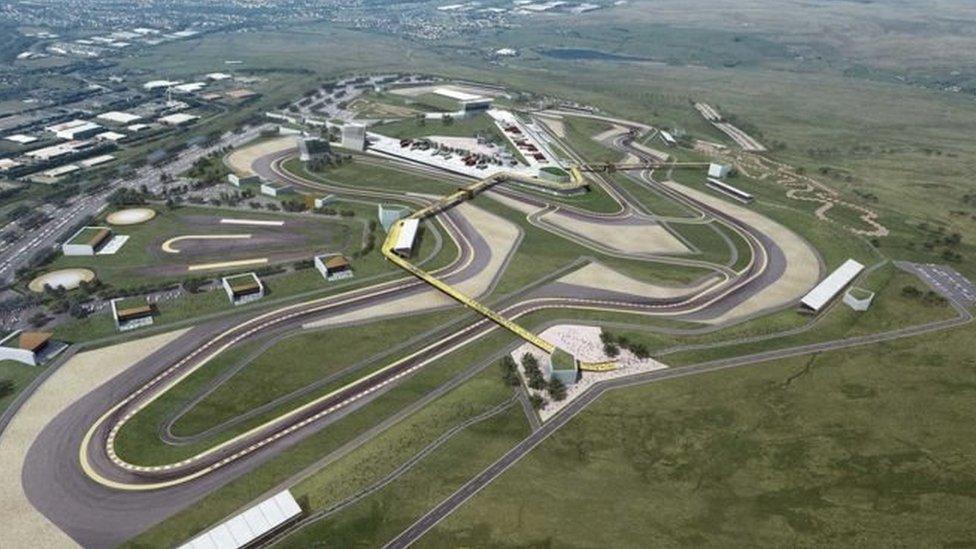
- Published2 March 2017
